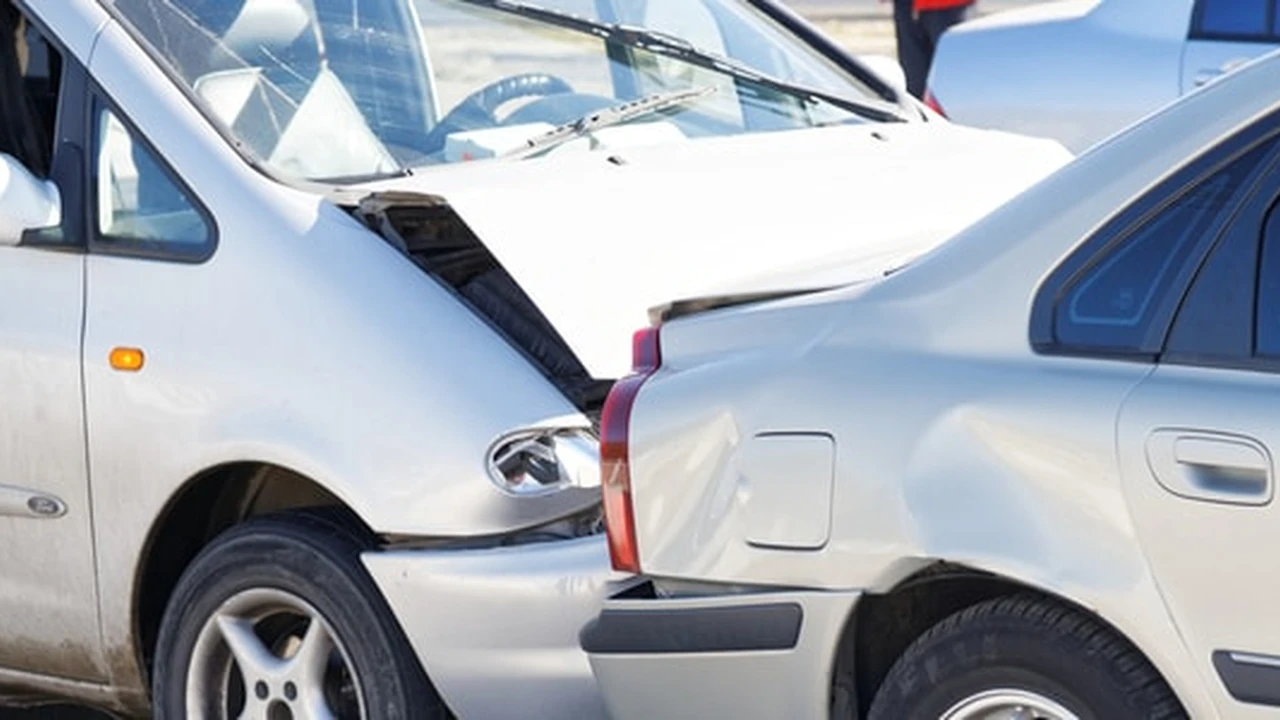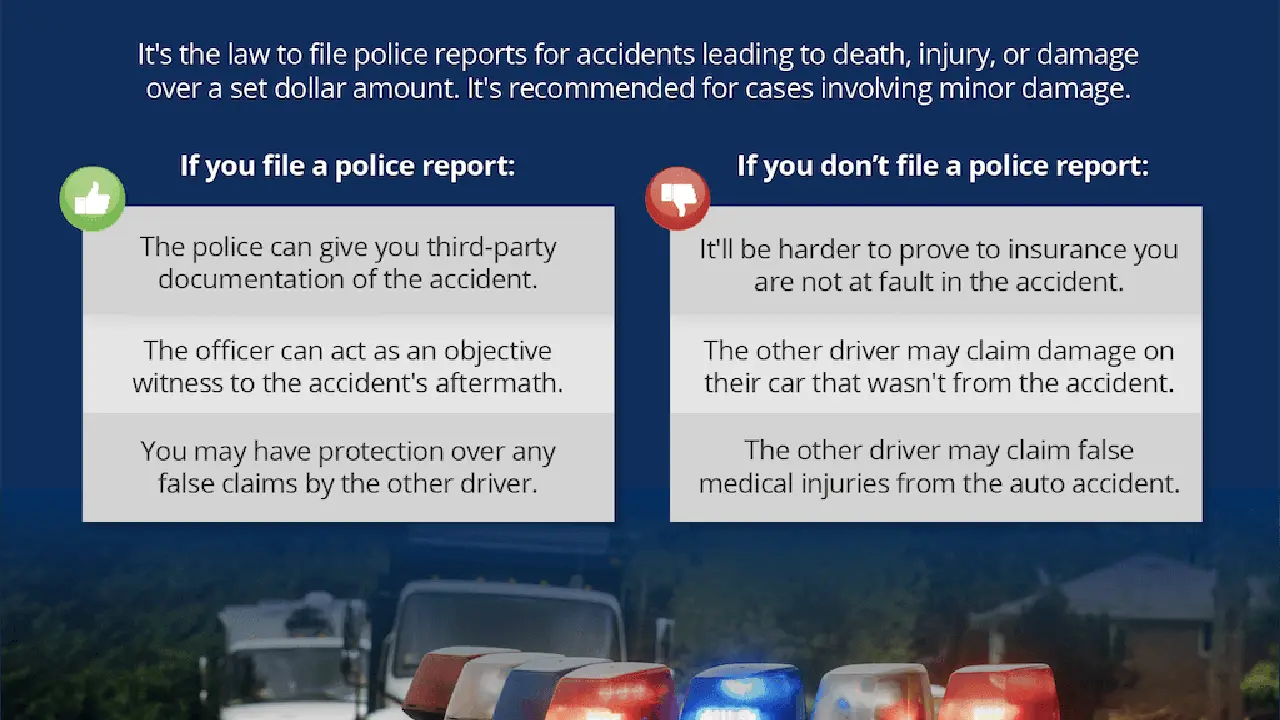Accidents Involving Motorcycles: Unique Claim Considerations

Understanding Motorcycle Accident Claim Basics Motorcycle Accident Claims
Okay, so you've been in a motorcycle accident. Not fun, right? First things first, let's break down the basics of filing a claim. Unlike car accidents, motorcycle accidents often involve more serious injuries due to the lack of protection. This means medical bills can skyrocket, and lost wages can become a significant concern. The claim process itself usually starts with notifying your insurance company (or the other driver's, if they're at fault). You'll need to provide details of the accident, including the date, time, location, and a description of what happened. Police reports are super helpful here. After that, the insurance company will investigate, which could involve interviewing you, the other driver, and any witnesses. They'll also review the police report and medical records to determine fault and the extent of your injuries. Be prepared for some back and forth; insurance companies aren't exactly known for their eagerness to hand over cash. Document everything – every conversation, every email, every medical bill. This paper trail is your best friend in navigating the claim process.
Unique Factors in Motorcycle Accident Claims Motorcycle Accident Injuries Motorcycle Accident Liability
Motorcycle accidents come with their own set of unique challenges. One big one is the perception of motorcycles. Unfortunately, there's a bias against motorcyclists, with some people automatically assuming they're reckless or at fault, even when that's not the case. This bias can impact how the insurance company assesses your claim. Another factor is the severity of injuries. Because motorcycles offer less protection than cars, riders are more vulnerable to serious injuries like broken bones, head trauma, and spinal cord injuries. These injuries can lead to long-term medical care, rehabilitation, and even permanent disability, significantly increasing the value of your claim. Establishing liability can also be tricky. Insurance companies might try to argue that you were speeding, lane splitting, or otherwise contributing to the accident. That's why it's crucial to gather evidence to support your claim, such as witness statements, photos of the accident scene, and expert testimony. Don't let the insurance company bully you into accepting a lowball settlement. Know your rights and be prepared to fight for fair compensation.
Essential Evidence Gathering After a Motorcycle Accident Motorcycle Accident Evidence Motorcycle Accident Documentation
Speaking of evidence, what should you be collecting after a motorcycle accident? First, get the police report. This is a crucial piece of documentation that outlines the official version of events. Next, take photos and videos of the accident scene. Capture everything – the damage to your motorcycle, the other vehicle, any skid marks, and the surrounding environment. If there are witnesses, get their contact information. Their statements can be invaluable in proving your case. Keep meticulous records of all your medical treatment, including doctor's visits, physical therapy, and prescriptions. Save every bill and receipt. If you've lost wages due to your injuries, gather documentation to prove your income, such as pay stubs or tax returns. Finally, keep a journal of your recovery. Document your pain levels, limitations, and how the accident has impacted your daily life. This journal can serve as powerful evidence of the emotional and physical toll the accident has taken on you.
Navigating Insurance Company Tactics Motorcycle Accident Negotiation Insurance Claim Settlement
Insurance companies are masters of the negotiation game. They'll often use various tactics to try to minimize your payout. One common tactic is to offer you a quick settlement that's far less than what your claim is worth. They might pressure you to accept the offer by saying it's the best you're going to get or that the offer will expire soon. Don't fall for it! Another tactic is to deny your claim outright, citing reasons like lack of evidence or pre-existing conditions. If this happens, don't give up. You have the right to appeal the denial and provide additional evidence to support your claim. They might also try to downplay the severity of your injuries or argue that your medical treatment was unnecessary. That's why it's important to have a doctor who is willing to advocate for you and document the extent of your injuries. Remember, the insurance company is not your friend. They're looking out for their bottom line, not yours. Be prepared to stand your ground and fight for a fair settlement.
Understanding Comparative Negligence Motorcycle Accident Fault Determination Shared Fault Accidents
Comparative negligence is a legal concept that can impact your motorcycle accident claim. It basically means that you can still recover damages even if you were partially at fault for the accident. However, your compensation will be reduced by the percentage of your fault. For example, if you were 20% at fault for the accident, you'll only be able to recover 80% of your damages. Insurance companies often try to use comparative negligence to reduce their payout. They might argue that you were speeding, lane splitting, or otherwise contributing to the accident. It's important to understand the laws in your state regarding comparative negligence and be prepared to defend yourself against these claims. If you believe you were not at fault, gather evidence to support your position, such as witness statements or expert testimony. Don't let the insurance company unfairly blame you for the accident.
The Role of a Motorcycle Accident Attorney Motorcycle Accident Lawyer Legal Representation
Navigating the complexities of a motorcycle accident claim can be overwhelming, especially when you're dealing with injuries and emotional distress. That's where a motorcycle accident attorney can come in handy. A good attorney can handle all aspects of your claim, from gathering evidence to negotiating with the insurance company to representing you in court if necessary. They can also provide valuable legal advice and guidance, ensuring that you understand your rights and options. An attorney can help you level the playing field against the insurance company, who has a team of lawyers working to protect their interests. They can also help you maximize your compensation by identifying all the damages you're entitled to, such as medical expenses, lost wages, pain and suffering, and property damage. Hiring an attorney is an investment in your future. While you'll have to pay attorney fees, the potential increase in your settlement can more than offset those costs.
Product Recommendations for Motorcycle Safety and Accident Documentation Motorcycle Accident Gear Motorcycle Accident Apps
Alright, let's talk gear and tools that can help keep you safe and prepared in case of an accident. Think of this as your insurance *before* the insurance claim, you dig?
Motorcycle Helmets: Protecting Your Head
First up: helmets. Duh, right? But not all helmets are created equal. We're talking DOT and ECE certified helmets here. Forget the cheap novelty helmets; you want something that's actually going to protect your brain.
Recommendation 1: Shoei RF-1400 - This is a premium helmet, known for its excellent ventilation, comfortable fit, and top-notch safety ratings. It's a bit pricey (around $600), but your brain is worth it, right? Great for long rides and everyday commuting. The ventilation system is amazing, keeping you cool even in hot weather. Compared to the Arai Corsair-X (another top-tier helmet), the RF-1400 is generally considered more comfortable for a wider range of head shapes.
Recommendation 2: Bell Qualifier DLX MIPS - A more budget-friendly option (around $250) that still offers excellent protection thanks to the MIPS (Multi-directional Impact Protection System) technology. This helps reduce rotational forces in a crash. It's a great choice for newer riders or those looking for a solid helmet without breaking the bank. While the ventilation isn't as good as the Shoei, it's still decent. Compared to other helmets in its price range, the Bell Qualifier DLX MIPS stands out for its safety features.
Recommendation 3: Scorpion EXO-R420 - Excellent value for money (around $200), offering a good balance of features and protection. Includes an Ellip-Tec II ratchet system for easy shield changes and a comfortable interior. A solid all-around choice.
Motorcycle Jackets and Armor: Shielding Your Body
Next, let's talk jackets and armor. A good motorcycle jacket isn't just for show; it's your first line of defense in a crash. Look for jackets with CE-rated armor in the shoulders, elbows, and back.
Recommendation 1: Alpinestars Atem V4 Leather Suit - For the serious rider. This is a premium leather suit (around $1300) that offers top-of-the-line protection and performance. Full CE-certified protection and aerodynamic design. Great for track days or aggressive street riding. Leather offers superior abrasion resistance compared to textile jackets.
Recommendation 2: Rev'It! Eclipse Jacket - A lightweight and breathable mesh jacket (around $150) perfect for hot weather riding. While it doesn't offer the same level of protection as a leather jacket, it's a significant improvement over riding in a t-shirt. Add CE-rated armor for added protection. Great for summer commuting.
Recommendation 3: Klim Kodiak Jacket - A high-end adventure touring jacket (around $1200) that's built to withstand the elements. Waterproof, windproof, and highly durable. Features CE-rated armor and plenty of storage pockets. Ideal for long-distance riding and unpredictable weather conditions.
Dash Cams and Action Cameras: Capturing the Incident
Okay, now for the tech. A dash cam or action camera can be invaluable in proving your case after an accident. It provides irrefutable evidence of what happened.
Recommendation 1: Innovv K5 Motorcycle Dash Cam - This is a dedicated motorcycle dash cam system (around $450) with front and rear cameras, GPS tracking, and loop recording. It's designed specifically for motorcycles and is weatherproof. The video quality is excellent, even in low light.
Recommendation 2: GoPro HERO12 Black - A versatile action camera (around $400) that can be used as a dash cam or for capturing your rides. It's waterproof, durable, and offers excellent video quality. You'll need to purchase a separate motorcycle mount.
Recommendation 3: Blueskysea DV788 Motorcycle Dash Cam - A budget-friendly option (around $200) with front and rear cameras. It's not as feature-rich as the Innovv K5, but it still provides solid evidence in case of an accident.
Motorcycle Accident Documentation Apps: Organizing Information
There are also apps designed to help you document the scene of an accident.
Recommendation 1: LegalShield - While not *just* an accident app, LegalShield provides access to attorneys who can advise you on the spot after an accident. The peace of mind is HUGE. Subscription based.
Recommendation 2: After Accident - This app (free and paid versions) helps you collect information at the scene of an accident, including photos, witness statements, and police reports. It also provides guidance on what to do after an accident.
Recommendation 3: Car Accident Report - Similar to After Accident, this app (free and paid versions) guides you through the process of documenting an accident and provides a template for creating an accident report.
Product Comparison Table:
| Product | Type | Price (USD) | Pros | Cons | Use Case |
|---|---|---|---|---|---|
| Shoei RF-1400 | Helmet | $600 | Excellent ventilation, comfortable fit, top-notch safety | Expensive | Long rides, everyday commuting |
| Bell Qualifier DLX MIPS | Helmet | $250 | MIPS technology, affordable | Ventilation not as good as premium helmets | Newer riders, budget-conscious riders |
| Scorpion EXO-R420 | Helmet | $200 | Excellent value, feature rich for the price | Some may find the interior less luxurious | Newer riders, budget-conscious riders |
| Alpinestars Atem V4 Leather Suit | Jacket | $1300 | Top-of-the-line protection, aerodynamic design | Expensive, bulky | Track days, aggressive street riding |
| Rev'It! Eclipse Jacket | Jacket | $150 | Lightweight, breathable, affordable | Less protection than leather jackets | Hot weather riding, summer commuting |
| Klim Kodiak Jacket | Jacket | $1200 | Waterproof, windproof, durable, CE-rated armor | Expensive | Long-distance riding, unpredictable weather |
| Innovv K5 Motorcycle Dash Cam | Dash Cam | $450 | Front and rear cameras, GPS tracking, weatherproof | Expensive | Dedicated motorcycle dash cam |
| GoPro HERO12 Black | Action Camera | $400 | Versatile, waterproof, excellent video quality | Requires separate motorcycle mount | Dash cam or capturing rides |
| Blueskysea DV788 Motorcycle Dash Cam | Dash Cam | $200 | Affordable, front and rear cameras | Not as feature-rich as premium dash cams | Budget-conscious motorcycle dash cam |
| LegalShield | App | Subscription Based | Access to attorneys on the spot | Ongoing cost | Peace of mind, immediate legal advice |
| After Accident | App | Free/Paid | Helps collect information at the scene | May require upgrades for full functionality | Documenting the accident scene |
| Car Accident Report | App | Free/Paid | Guides you through the process of documenting | May require upgrades for full functionality | Documenting the accident scene |
:max_bytes(150000):strip_icc()/277019-baked-pork-chops-with-cream-of-mushroom-soup-DDMFS-beauty-4x3-BG-7505-5762b731cf30447d9cbbbbbf387beafa.jpg)





.webp)
